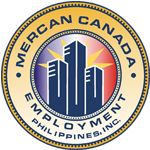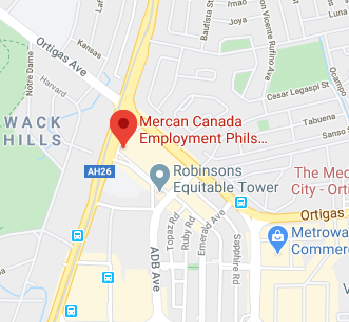Determining membership in the spouse or common-law partner in Canada class
A foreign national meets the membership requirements of the spouse or common-law partner in Canada class [R124] if all of the following apply:
- if they are the spouse or common-law partner of a sponsor (as defined in R130) and cohabit with that sponsor in Canada (Common-law partners must have cohabited for at least one year [R1(1)]
- if they have temporary resident status (this requirement may be waived under the spousal public policy)
- Appendix A: See lack of status
- if they are the subject of a sponsorship application
- if they are not excluded from the class under R125 concerning excluded relationships
On this page
- Other requirements
- Lawful temporary resident status in Canada
- Applicants who leave Canada before a final decision is made on their application for permanent residence
- Work and study permits
Other requirements
Other requirements applicable to a foreign national, who applies to remain in Canada as a member of the Spouse or Common-law Partner in Canada Class:
- a foreign national is not considered a spouse or common-law partner if the marriage or common-law partnership is not genuine or was entered into primarily for the purpose of acquiring any status or privilege under the Act [R4]
- a foreign national is not considered a spouse or common-law partner if a new conjugal relationship was begun after a previous marriage or common-law partnership with that person was dissolved primarily to acquire any status or privilege under IRPA [R4.1]
- a foreign national must not be the subject of enforcement proceedings or a removal order for reasons other than “lack of status†(see definition of “lack of status†under the spousal public policy). Although most persons who are under a removal order or facing enforcement proceedings for reasons other than “lack of status†are eligible for initial consideration under the public policy as they meet the criteria in R124, they cannot be granted permanent residence as they will be found inadmissible in the second stage of processing
- a foreign national becomes a permanent resident if they meet the requirements of R72
- a foreign national and their family members must meet admissibility requirements (R72), however, they are exempt from inadmissibility on health grounds due to excessive demand on health and social services
- a foreign national must have a valid passport or travel document by the time permanent residence is granted (R72)
Lawful temporary resident status in Canada
To be eligible to become members of the class, applicants in the spouse or common-law partner in Canada class must have valid temporary resident status on the date of application and on the date they receive permanent resident status.
Exemption from requirement to have temporary resident status
The spousal public policy facilitates the processing of genuine out-of-status spouses or common-law partners in the spouse or common-law partner in Canada class who meet the other eligibility requirements of the class. Applicants who are covered under the public policy should be processed according to the provisions of the spousal public policy.
Applicants who do not have temporary resident status and who are not eligible under the spousal public policy can be removed at any time. Further, the spousal policy does not change the requirement to seek necessary authorization to visit Canada or to work or study here.
If the applicant cannot be exempted from the legal temporary resident status requirement under the spousal public policy they may request an exemption from the requirement to have temporary resident status in Canada on Humanitarian and compassionate grounds.
Public policy cases where the relationship is ongoing but the applicant has been deported or where the applicant and sponsor are in an excluded relationship (for example, R4, R5, R125(1)(d)) should not result in the application being converted to a humanitarian and compassionate in-Canada application. Instead, these humanitarian and compassionate grounds requests should be considered in the context of the spouse or common-law partner in Canada class.
What is “lack of status†under the public policy?
For the purposes of the spousal public policy, persons with a “lack of status†refers to those in the following situations:
- persons who have overstayed a visa, visitor record, work permit, study permit or temporary resident permit
- persons who have worked or studied without being authorized to do so as prescribed by the Act
- persons who have entered Canada without a visa or other document required by the Regulations
- persons who have entered Canada without a valid passport or travel document (provided valid documents are acquired by the time IRCC seeks to grant permanent residence)
- persons who elude examination upon entry to Canada. In these cases, officers should assess the bona fides of the relationship. If it is deemed to be a relationship of convenience, the application should be refused. If the relationship is deemed bona fide, the application should not be refused on the grounds that the person did not present himself at the port of entry for examination upon entry.
Note: Lack of status may also refer to persons who have overstayed a temporary resident permit.
“Lack of status” for the purposes of the spousal public policy, does not refer to any other inadmissibilities including, but not limited to:
- failure to obtain authorization to return to Canada (PDF, 600 KB), when required, after removal or after a removal order has been otherwise enforced
- persons who have entered Canada with a fraudulent or improperly obtained passport, travel document or visa and who have used the document for misrepresentation under IRPA. Persons are excluded from being granted permanent residence under this public policy if:
- they used a fraudulent or improperly obtained passport, travel document or visa to gain entry into Canada; and
- this document was not surrendered or seized upon arrival; and
- the applicant subsequently used these fraudulent or improperly obtained documents to acquire temporary or permanent resident status.
Other cases may be refused if there is clear evidence of misrepresentation (PDF, 271 KB) under IRPA.
Spouse or common-law partner who is a refugee claimant
Work permits or study permits issued to refugee claimants do not confer status. Therefore, a spouse or common-law partner who was issued a work or study permit when their claim was referred to the Refugee Protection Division is not a temporary resident. As a result, they do not meet the requirements of R124(b) and do not qualify as members of the spouse or common-law partner in Canada class.
However, the requirement to have temporary resident status in Canada may be waived under the spousal public policy. This means that refugee claimants who do not have temporary resident status in Canada are eligible for consideration under the provisions of this class provided they continue to meet the requirements specific to inadmissibility grounds other than lack of status.
Applicants who leave Canada before a final decision is made on their application for permanent residence
There is no guarantee that foreign nationals who have left Canada after submitting an application under the Spouse or Common-law Partner in Canada class will be allowed to return to or re-enter Canada. If they are unable to do so, their application for permanent residence may be refused because they are not cohabiting with their spouse or common-law partner at the time the case is finalized [R72(1)(d) and R124(a)].
It may be appropriate to counsel applicants who are outside Canada to withdraw their spouse or common-law partner in Canada class application and have the sponsor submit a new Application to Sponsor, Sponsorship Agreement and Undertaking to the CPC-Mississauga (CPC-M).
Work and study permits
Applicants under this class are eligible to be issued an open work permit if they meet all of the following requirements:
- a permanent resident application has been submitted pursuant to the Spouse or Common-law partner in Canada class
- the applicant resides at the same address as the sponsor
- the applicant has valid temporary resident status (as a visitor, student or worker)
- a Canadian citizen or permanent resident spouse has submitted a sponsorship application on their behalf
Note: Applicants being processed for permanent residence under the spousal public policy on the basis that they do not have valid temporary resident status are not eligible to be issued an open work permit under these measures. They will be required to wait until they have met eligibility requirements, and received approval in principle, in order to be eligible to apply for an open WP.
The CPC-M will advise applicants in writing when they are eligible to apply for a study permit.
An applicant already in possession of a work or study permit who wishes to maintain their temporary resident status as a student may complete and submit an Application to Change Conditions, Extend my Stay or Remain in Canada as a Student form [IMM 5709] and submit it as per instruction provided in the guide.


